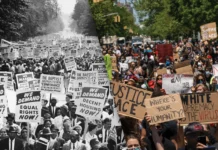
International Day for the Elimination of Sexual Violence in Conflict, June 19
The chronic underreporting of conflict-related sexual violence, due to stigma, insecurity, fear of reprisals, and lack of services, has been compounded by COVID-19 containment measures. Lockdowns, curfews, quarantines, fears of contracting or transmitting the virus, mobility restrictions, and limited access to services and safe spaces, as shelters closed and clinics were repurposed for the pandemic response, added a layer of complexity to existing structural, institutional and sociocultural barriers to reporting.
The pandemic has laid bare the intersecting inequalities that plague our societies, as compounded by conflict, displacement, and institutional fragility. The only solution for these overlapping ills is an injection of political resolve and resources equal to the scale of the challenge.
A gender-responsive global recovery from COVID-19 should not aim for a return to the pre-pandemic status quo, but instead promote a new social contract in which no one in power is above the law, and no one rendered powerless is beneath the protection of the law, with the ultimate goal of achieving true equality and justice. It entails decisive action to mitigate risks and prevent sexual violence, and to ensure that no one is left behind in the response.
Views: 70





